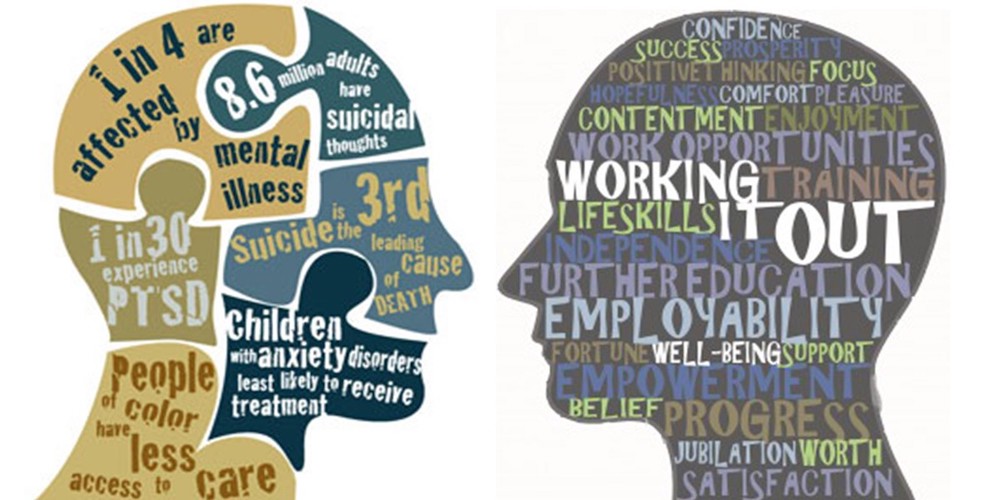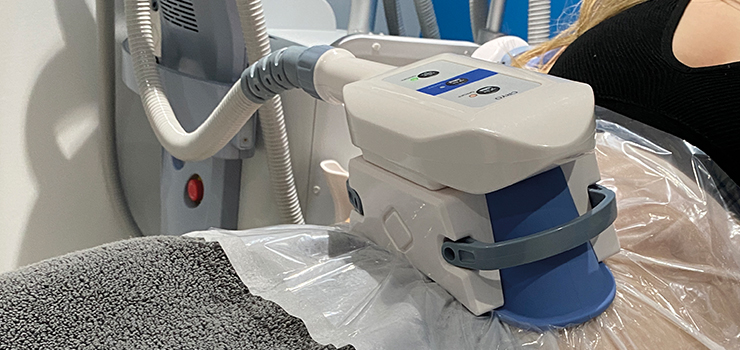Coronavirus and Your Mental Health

How to look after your mental health and wellbeing if you’re self-isolating
 With the coronavirus outbreak situation developing every day, ‘self-isolation’ is one of the topics that everybody has been talking about.
With the coronavirus outbreak situation developing every day, ‘self-isolation’ is one of the topics that everybody has been talking about.
You might be worried about coronavirus (COVID-19) and how it could affect your life or your friends and family. This may include having to stay at home and avoid other people that you care about. This might feel difficult or stressful. However there are many things you can try that could help your mental health wellbeing.
This information might help you if you are:
- Feeling anxious or worried about coronavirus.
- Staying at home and avoiding public places, following Government advice that we should stay at home as much as possible.
- Self-isolating because you, or someone you live with, has symptoms of coronavirus. Self-isolating means that you stay home and keep away from other people.
Coronavirus Self-Isolate Mental Health Guide
The Government has advised that all UK citizens need to self-isolate at home and practice social-distancing. However what about the impact that cutting off human contact will have on your mental health and wellbeing. For most people the need for human contact is a basic instinct. Therefore when you are forced to be alone, it can have a negative impact on wellbeing and psychological health.
Solitary confinement has been used as a punishment for hundreds of years, therefore it is understandable that the idea of it in this situation has scared many people. Isolation can cause immense stress, there will be pinch points, but there are things you can do to have relieve that.
Keep In Contact
Human contact and connection is really important to many people. We can keep in contact with one another though the use of modern day technology, these can include:
- Facetime
- Skype
- Snapchat
- Houseparty
- Messanger
- Text
- Phone Call
Reframe
If you can reframe your thoughts into being positive, that can help. If it’s possible try to think of this time as an opportunity to get something done. It might reading a book, doing your ironing, sorting your cloths, drawing and painting, catching up on something or even meditation. Try to get into a positive mind frame. Remember this is for a set time period and will not last forever. If you’re not sick, and you’re able to work from home, that can be really helpful. Try to keep a sense of normality as far as possible.
Self-care
It’s important to practise self-care if you’re self-isolating. Take the time to look after yourself as you are important! If you’re stuck by yourself, even if you’re confined to one room of your house, you may still be able to do some meditation, yoga or even some basic physical activity while watching an exercise video. You may want to look after yourself by limiting the amount of time you spend reading the news or looking at social media. For many blocking this out can really help reduce anxiety and panic attacks.
Breathing Techniques
Breathing techniques can also be very helpful during self-isolation or any anxiety situation. Take a deep breath in, hold it in for a few seconds and then breath back out. You may notice a difference in how you feel already. Your breath is a powerful tool to ease stress and make you feel less anxious. Some simple breathing exercises can make a big difference if you make them part of your regular routine.Before you get started, keep these tips in mind. Choose a place to do your breathing exercise. It could be in your bed, on your living room floor, or in a comfortable chair. Many breathing exercises take only a few minutes. When you have more time, you can do them for 10 minutes or more to get even greater benefits.
Deep Breathing
Most people take short, shallow breaths into their chest. It can make you feel anxious and zap your energy. With this technique, you'll learn how to take bigger breaths, all the way into your belly.
- Get comfortable. You can lie on your back in bed or on the floor with a pillow under your head and knees. Or you can sit in a chair with your shoulders, head, and neck supported against the back of the chair.
- Breathe in through your nose. Let your belly fill with air.
- Breathe out through your nose.
- Place one hand on your belly. Place the other hand on your chest.
- As you breathe in, feel your belly rise. As you breathe out, feel your belly lower. The hand on your belly should move more than the one that's on your chest.
- Take three more full, deep breaths.
- Breathe fully into your belly as it rises and falls with your breath.
Breath Focus
While you do deep breathing, use a picture in your mind and a word or phrase to help you feel more relaxed.
- Close your eyes if they're open.
- Take a few big, deep breaths.
- Breathe in. As you do that, imagine that the air is filled with a sense of peace and calm. Try to feel it throughout your body.
- Breathe out. While you're doing it, imagine that the air leaves with your stress and tension.
- Now use a word or phrase with your breath. As you breathe in, say in your mind, "I breathe in peace and calm."
- As you breathe out, say in your mind, "I breathe out stress and tension."
- Continue for 10 to 20 minutes.
Progressive Muscle Relaxation
In this technique, you breathe in as you tense a muscle group and breathe out as you release it. Progressive muscle relaxation helps you relax physically and mentally.
- Lie comfortably on the floor.
- Take a few deep breaths to relax.
- Breathe in. Tense the muscles of your feet.
- Breathe out. Release the tension in your feet.
- Breathe in. Tense your calf muscles.
- Breathe out. Release the tension in your calves.
- Work your way up your body. Tense each muscle group. This includes your legs, belly, chest, fingers, arms, shoulders, neck, and face.
Modified Lion's Breath
As you do this exercise, imagine that you're a lion. Let all of your breath out with a big, open mouth.
- Sit comfortably on the floor or in a chair.
- Breathe in through your nose. Fill your belly all the way up with air.
- When you can't breathe in any more, open your mouth as wide as you can.
- Breathe out with a "HA" sound.
- Repeat several times.
Practical advice for staying at home

Eat Well & Stay Hydrated
- Think about your diet. Your appetite might change if your routine changes, or if you’re less active than you usually are. Eating regularly and keeping your blood sugar stable can help your mood and energy levels. See our tips on food and mood for more information.
- Drink water regularly. Drinking enough water is important for your mental and physical health. Changing your routine might affect when you drink or what fluids you drink. It could help to set an alarm or use an app to remind you.
- If you are self-isolating, you can ask someone to drop off essential food items for you. If they do this, ask them to leave food at your doorstep, to avoid face-to-face contact with each other.
- You may find that supermarkets and online delivery services feel busier than usual at the moment. If you're feeling anxious about going to the supermarket or arranging an online delivery, it might help to try some breathing exercises (listed above).
Continue Accessing Treatment & Support If Possible
- Ask about having appointments by phone, text or online. For example, this could be with your counsellor, therapist or support worker.
- Ask your therapist how they can support you, for example if you’re struggling with not seeing them face to face.
- Speak to friends and/or family members about how you are feeling.
- Access helplines or online chats that specialised in anxiety conditions.
Take Care Of Your Immediate Environment
- If you are spending a lot of time at home, you may find it helpful to keep things clean and tidy, although this is different for different people.
- If you live with other people, keeping things tidy might feel more important if you’re all at home together. But you might have different ideas about what counts as 'tidy' or how much it matters. It could help to decide together how you’ll use different spaces.
- Your energy costs will probably rise if you’re at home more than you usually would be. Think about how you can manage your energy use, or how to cover any higher bills. You could also ask your energy provider about any support they offer.
Keep In Touch Digitally
- Make plans to video chat with people or groups you’d normally see in person.
- You can also arrange phone calls or send instant messages or texts.
- If you’re worried that you might run out of stuff to talk about, make a plan with someone to watch a show or read a book separately so that you can discuss it when you contact each other.
- Think of other ways to keep in contact with people while meeting in person is not possible. For example, you could check your phone numbers are up to date, or that you have current email addresses for friends you've not seen for a while.
- Speak with someone you trust. If you are feeling anxious about coronavirus or staying at home more than usual, you may find it helpful to talk about these worries with someone you trust, especially if they are in a similar situation.
- You could join a peer support community. Mind runs an online peer support community called Elefriends, where you can share your experiences and hear from others.
Decide On Your Routine
- Plan how you’ll spend your time. It might help to write this down on paper and put it on the wall.
- Try to follow your ordinary routine as much as possible. Get up at the same time as normal, follow your usual morning routines, and go to bed at your usual time. Set alarms to remind you of your new schedule if that helps.
- If you aren’t happy with your usual routine, this might be a chance to do things differently. For example, you could go to bed earlier, spend more time cooking or do other things you don’t usually have time for.
- Think about how you’ll spend time by yourself at home. For example, plan activities to do on different days or habits you want to start or keep up.
- Agree on a household routine. Try to give everyone you live with a say in this agreement. Try to respect each other's privacy and give each other space. For example, some people might want to discuss everything they’re doing while others won’t.
Try To Keep Active
Build physical activity into your daily routine, if possible. Most of us don’t have exercise equipment like treadmills where we live, but there are still activities you can do. Exercising at home can be simple and there are options for most ages and abilities, such as:
- Cleaning your home
- Dancing to music
- Going up and down stairs
- Seated exercises
- Online exercise workouts that you can follow
- Sitting less – if you notice you’ve been sitting down for an hour, just getting up or changing position can help.
- Spend time with the windows open to let in fresh air.
- Arrange a comfortable space to sit, for example by a window where you can look out over a view of trees or the sky, or watch birds and other animals.
- Look at photos of your favourite places in nature. Use them as the background on your mobile phone or computer screen, or print and put them up on your walls.

Keep Your Mind Stimulated
Keep your brain occupied and challenged. Set aside time in your routine for this. Read books, magazines and articles. Listen to podcasts, watch films and do puzzles. Although high street library branches are closed, some libraries have apps you can use online. These allow you to borrow ebooks, audiobooks or magazines from home for free, if you're a library member. FutureLearn and OpenLearn have free online courses you could try. There are lots of apps that can help you learn things, such as a foreign language or other new skills.
Feeling Claustrophobic Or Trapped
Open the windows to let in fresh air. Or you could spend time sitting on your doorstep, or in the garden if you have one. Try looking at the sky out of the window or from your doorstep. This can help to give you a sense of space. Regularly change the rooms you spend time in.
Checklist for staying at home
- Food: do you have a way to get food delivered if you need to self-isolate?
- Cleaning: do you have cleaning supplies?
- Work: can you carry on working, including working from home? If not, can you find out your rights to payment or benefits?
- Medication: do you have enough medication, or a way to get more?
- Health: can you reorganise any planned therapy or treatments?
- Connectivity: have you got ways to keep in contact with people you see regularly, like their phone numbers, email addresses? Do you need help setting up digital communication, like a video calling app?
- Routine: can you create a routine or timetable for yourself? And if you live with other people, should you create a household schedule? Do you need to agree how the household will run with everyone at home all day?
- Exercise: is there any physical activity you can do inside your home, like going up and down the stairs, using bean tins as weights, or exercises you can do in your chair?
- Nature: have you thought about how you can bring nature into your home? Can you get some seeds and planting equipment delivered, or put up photos of green spaces?
- Entertainment: have you thought about things to do, books to read or TV shows to watch?
- Relax: have you got materials so you can do something creative, such as pencils and paper?
Who can I contact?
- To talk about anything that is upsetting you, you can contact Samaritans 24 hours a day, 365 days a year. You can call 116 123 (free from any phone), email jo@samaritans.org or visit some branches in person. You can also call the Welsh Language Line on 0300 123 3011 (7pm–11pm every day).
- If you're experiencing a mental health problem or supporting someone else, you can call SANEline on 0300 304 7000 (4.30pm–10.30pm every day).
- If you're under 25, you can call The Mix on 0808 808 4994 (Sunday-Friday 2pm–11pm), request support by email using this form on The Mix website or use their crisis text messenger service.
- If you're under 35 and struggling with suicidal feelings, or concerned about a young person who might be struggling, you can call Papyrus HOPELINEUK on 0800 068 4141 (weekdays 10am-10pm, weekends 2pm-10pm and bank holidays 2pm–10pm), email pat@papyrus-uk.org or text 07786 209 697.
- If you identify as male, you can call the Campaign Against Living Miserably (CALM) on 0800 58 58 58 (5pm–midnight every day) or use their webchat service.
- If you're a student, you can look on the Nightline website to see if your university or college offers a night-time listening service. Nightline phone operators are all students too.
- If you identify as gay, lesbian, bisexual or transgender, you can call Switchboard on 0300 330 0630 (10am–10pm every day), email chris@switchboard.lgbt or use their webchat service. Phone operators all identify as LGBT+.
- If you live in Wales, you can call the Community Advice and Listening Line (C.A.L.L.) on 0800 132 737 (open 24/7) or you can text 'help' followed by a question to 81066.
- For more options, visit the Helplines Partnership website for a directory of UK helplines. Mind’s Infoline can also help you find services that can support you. If you're outside the UK, the Befrienders Worldwide website has a tool to search by country for emotional support helplines around the world.
Disclaimer
*The content of the webpages in our Mental Health section are provided for general information only. They are not intended to, and does not, amount to advice which you should rely on. They are not in any way an alternative to specific advice. You must therefore obtain the relevant professional or specialist advice before taking, or refraining from, any action based on the information in these webpages. If you have questions about any medical matter, you should consult your doctor or other professional healthcare provider without delay. If you think you are experiencing any medical condition you should seek immediate medical attention from a doctor or other professional healthcare provider.






